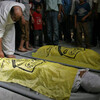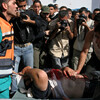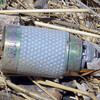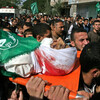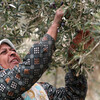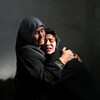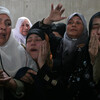
Death toll hits 44, medical crew targeted, in escalating Gaza operations
5 November 2006
In an escalating military action that is being waged by the Israeli Occupation Forces (IOF) in Gaza, the IOF have killed 44 Palestinians, injured 176, and destroyed numerous homes and properties in the Gaza Strip between 1 November 2006 and 4 November. Thirty-nine of the killed are from the town of Beit Hanoun alone. The IOF has expanded its incursion in the north-Gaza towns of Beit Hanoun, Jabalia and Beit Lahia, carried out four extra-judicial assassinations, and killed three medics in an attack near their ambulance. In addition, the IOF killed and wounded numerous women as they protested the siege onto their neighborhood in Beit Hanoun. Read more about Death toll hits 44, medical crew targeted, in escalating Gaza operations
